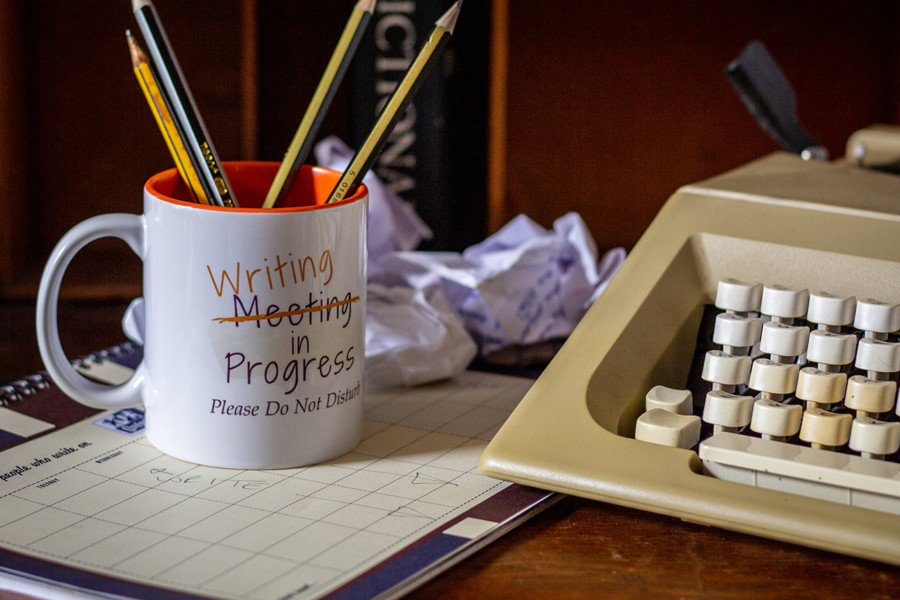A long term participant in A Meeting With Your Writing recently mentioned that it has been 4 years. Wow, where does the time go? I remember when I came up with this idea. I wondered what I would do if no one signed up. Or, worse, if only 3 people signed up and then I […]
Read More »Being available, with limits
Jo VanEvery, Academic Career Guide · Being available with limits There are all kinds of reasons why you need to be available to students outside the classroom. You have various means of enabling those students to ask questions outside of class time: Fixed hours when you are available in your office for this purpose An […]
Read More »New Academic Year roundup
The spiral-like nature of your academic life is particularly evident at the beginning of the academic year. No matter how experienced you are, it is always a bit chaotic. It offers the possibility of doing things better, or at least differently, this year. It is easy to approach a new year with your eyes on […]
Read More »Managing your workload by creating containers
One way to get some control over how much time and energy you give to certain kinds of legitimate requests is to create a container for that kind of work.
Just as it is easier to store flour if you pour it into something with firm sides and a lid (so it doesn’t just flow all over the counter), some tasks can benefit from being contained in particular time periods or particular spaces.
Read More »Decisions take energy
making decisions is one of the most energy-intensive things we do as humans. Making a decision just plain takes a lot of calories. With a complex life, our brains are exhausted most days, too exhausted to make good decisions. Mark Silver A common scenario You have a sense that you should be writing regularly. You […]
Read More »The benefits of working small
Jo VanEvery, Academic Career Guide · The benefits of working small In another post, I asked: “How could you experiment with working in a relaxed state?” — Is working at or just beyond your limits really effective? I proposed that the ways in which my yoga teacher has been encouraging us to work within the comfortable […]
Read More »Is working at or just beyond your limits really effective?
We live in a culture in which we are often demanded to do more. How much writing can you do in a year/semester/week/hour? How many students can you teach effectively? This constant striving for more leaves many of us feeling inadequate a lot of the time. It also privileges an approach to work that is […]
Read More »Thoughts on accountability, deadlines & goals
Jo VanEvery, Academic Career Guide · Thoughts on accountability, deadlines, and goals You want to write more. You want to finish and submit more of your writing. You may think that the only way to do that is to do one or more of the following: set concrete (product-oriented) goals give yourself deadlines for […]
Read More »On valuing your work
Jo VanEvery, Academic Career Guide · On valuing your work I came across a blog post by an artist that resonated with things I know academics also experience. I’d like to share it with you. The post is Artist’s Statement — Part Two at The Pale Rook. In it, the author talks about her own […]
Read More »You don’t need accountability
Jo VanEvery, Academic Career Guide · You don’t need accountability Why do you want an accountability partner/coach/whatever for writing? The things you most dislike about your job, and that you would not do if an external body did not require them, have accountability to that external body built in. You do your grading. You do […]
Read More »Change is hard
Whether you want personal change or institutional change, there are some things you need to accept about how it will happen. There is no magic wand It would be really nice if there were. Imagine “Poof!” and things are the way you’d like them to be. No messy transition. Some things are better but […]
Read More »Thoughts on work, creativity, and “bureaucracy’s perverse attractions”
An article about university bureaucracy by Elaine Glaser in the Times Higher contained this thought provoking paragraph: In The Utopia of Rules, Graeber offers a convincing account of bureaucracy’s perverse attractions. It offers a chimera of absolute transparency, consistency and fairness. It is like a game with perfect rules – and which is also not […]
Read More »














